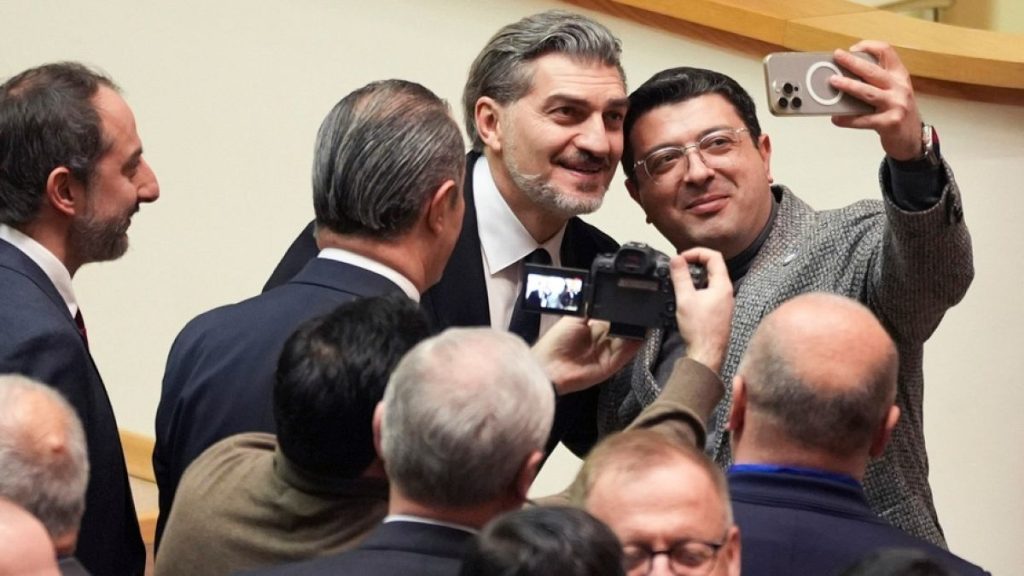Mikheil Kavelashvili’s journey from the football pitch to the presidency of Georgia is a story of surprising turns and escalating political tensions. His recent election, secured through an electoral college dominated by the ruling Georgian Dream party, marks a significant shift in Georgian politics, solidifying the party’s power and raising concerns about the country’s democratic trajectory. Kavelashvili’s background, devoid of traditional political experience, coupled with his controversial stances, has fueled both intrigue and criticism, painting a complex picture of Georgia’s political landscape.
Kavelashvili’s early life was marked by athletic prowess. Emerging from Dinamo Tbilisi’s youth system, he displayed a talent for football that propelled him to a professional career. He became a fixture in his local team before venturing abroad to play for Spartak Vladikavkaz in Russia. His career reached a pinnacle with a stint at Manchester City, followed by spells in the Swiss Super League. Representing the Georgian national team, he further solidified his status as a prominent figure in the sporting world. This period, characterized by dedication and achievement on the field, laid the groundwork for an unexpected transition into the realm of politics.
The shift from athlete to politician came a decade after Kavelashvili hung up his boots. In 2016, he entered the Georgian parliament as a member of the Georgian Dream party. This marked the beginning of his political ascent, which gained momentum with the co-founding of the People’s Power movement in 2022. This movement, allied with Georgian Dream, adopted a distinctly anti-Western stance, setting the stage for Kavelashvili’s controversial rise within the political ranks.
Kavelashvili’s political persona has been shaped by his association with Georgian Dream and his increasingly strong anti-Western rhetoric. This positioning has drawn criticism from the opposition, who view him as a figurehead for a party consolidating its grip on power at the expense of democratic principles. The electoral college system, implemented in 2017, has been criticized for diminishing the role of direct presidential elections, further fueling concerns about the erosion of democratic processes. Kavelashvili’s election, uncontested within this system, underlines the opposition’s concerns about the tightening control of Georgian Dream.
The controversy surrounding Kavelashvili’s political ascent extends beyond his alignment with Georgian Dream. His lack of formal higher education has become a point of contention, with opponents using it to question his suitability for the presidency. Protests on his election day, featuring displays of university diplomas and symbolic footballs, highlighted the deep divisions within Georgian society and the skepticism surrounding his leadership. These demonstrations underscore the anxieties about the direction of the country under Georgian Dream and Kavelashvili’s leadership.
Kavelashvili’s involvement in the drafting of a controversial law targeting foreign-funded organizations further exacerbated existing tensions. The law, reminiscent of similar legislation in Russia, has been criticized for potentially stifling dissent and undermining civil society. His accusations of “radicalisation and polarisation” fueled from abroad, along with his criticism of the outgoing president, Zourabichvili, for her pro-Western stance, have deepened the political divide. These actions have reinforced concerns about the trajectory of Georgia’s relationship with the West and the potential for increased alignment with Russia. Kavelashvili’s presidency thus begins under a cloud of controversy, with his political opponents and international observers expressing apprehension about the future of Georgia’s democratic institutions and its geopolitical orientation.














